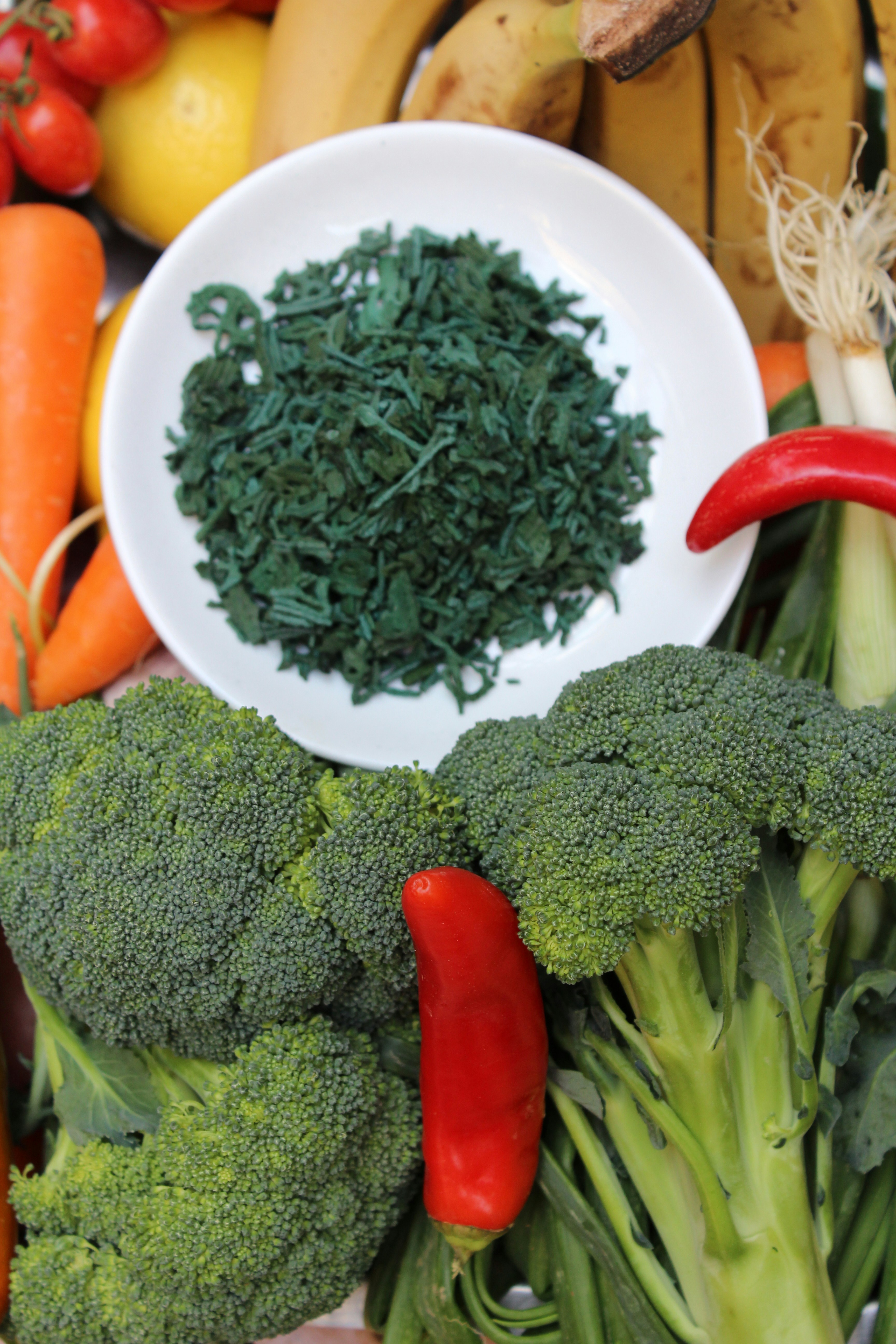Introduction to Frozen Fruits and Vegetables
In recent years, the consumption of frozen fruits and vegetables has gained significant traction among health-conscious individuals, including nutritionists. This shift is attributed to several factors that highlight the benefits of incorporating frozen produce into one’s diet. For many, fresh fruits and vegetables might seem like the best options for optimal nutrition; however, awareness of the advantages of frozen varieties is on the rise.
Frozen fruits and vegetables are typically processed at their peak ripeness, when nutrient levels are highest. This method of preservation ensures that essential vitamins and minerals are retained effectively, often preserving them at levels comparable to, or sometimes exceeding, those found in fresh counterparts. As a result, frozen produce can be an excellent way to maintain nutritional intake year-round, regardless of seasonality.
Convenience is another appealing aspect that drives the popularity of frozen fruits and vegetables. They require no washing, peeling, or chopping, making them an ideal choice for busy lifestyles. With these products readily available in freezers, individuals can easily add them to meals, thus enhancing their overall diet without the time commitment often associated with fresh produce preparation.
Additionally, frozen fruits and vegetables have a longer shelf life compared to their fresh counterparts, reducing food waste, a growing concern in modern household nutrition. This longevity means they can be purchased in bulk, providing consumers with nutritious options even when fresh produce is out of season or unavailable.
In conclusion, the rising popularity of frozen fruits and vegetables among health-conscious individuals and nutritionists is not merely a trend; it reflects an understanding of their nutritional benefits, convenience, and potential to contribute to a healthy diet.
Nutrient Retention
One of the primary reasons nutritionists advocate for the consumption of frozen fruits and vegetables is the impressive ability of the freezing process to preserve their nutritional value. When fruits and vegetables are harvested, they begin to lose their nutrients over time due to exposure to light, heat, and air. However, the freezing process effectively halts this deterioration. Typically, produce is frozen shortly after being picked, which allows it to retain essential vitamins and minerals that may diminish in fresh produce as it sits on store shelves or is transported over long distances.
Research has shown that the nutrient levels in frozen fruits and vegetables can be on par with, or even superior to, their fresh counterparts. A study published in the Journal of Food Science found that certain frozen vegetables, such as peas, can retain higher levels of certain vitamins compared to fresh versions that may have spent days in transit. This is because flash freezing, which is used by many producers, locks in the nutrients immediately after harvesting, preserving freshness and flavor effectively.
Furthermore, factors such as the duration of freshness and storage conditions for fresh produce play a significant role in nutrient retention. Fresh fruits and vegetables that have been stored improperly or for extended periods may lose a substantial percentage of their vitamins, particularly water-soluble ones like vitamin C and several B vitamins. By contrast, frozen options are a reliable source of nutrition, offering a practical solution for individuals seeking to maintain a healthy diet, especially when fresh produce may not be readily available or is not in season.
In conclusion, frozen fruits and vegetables provide a convenient and accessible way to ensure a consistent intake of vital nutrients, making them an excellent choice for health-conscious consumers and nutritionists alike.
Convenience and Shelf Life
One of the primary reasons nutritionists advocate for the use of frozen fruits and vegetables is the undeniable convenience they offer. Fresh produce, while beneficial, often requires significant preparation time; from washing and peeling to chopping and cooking, the process can be quite time-consuming. In contrast, frozen options frequently come pre-washed and cut, significantly reducing the time spent in the kitchen. This ease of use allows nutritionists, busy individuals, and families alike to incorporate wholesome vegetables and fruits into their meals more effortlessly.
Moreover, the extended shelf life of frozen fruits and vegetables cannot be overstated. Unlike fresh produce, which may spoil within a few days of purchase, frozen options can last for several months without losing nutritional quality or taste. This longevity not only makes them a practical choice for meal planning but also helps mitigate food waste, a pressing issue in the realm of sustainability. By having frozen produce readily available, individuals can utilize what they need and store the rest without the concern of rapid spoilage.
Nutritionists particularly value the versatility that frozen fruits and vegetables bring to the table. The ability to keep a range of options on hand allows for diverse meal preparation, from smoothies and soups to stir-fries and casseroles. This variety facilitates balanced meals that can easily meet dietary guidelines while satisfying personal preferences. Overall, the convenience and longer shelf life of frozen produce serve as significant advantages in promoting healthier eating habits while also being mindful of time and resource management.
Cost-Effectiveness
One of the primary reasons nutritionists advocate for the purchase of frozen fruits and vegetables is their remarkable cost-effectiveness. These products are often more affordable than their fresh counterparts, particularly when it comes to seasonal availability. Fresh fruits and vegetables can be subject to fluctuating prices based on the season and supply chain dynamics, leading to higher costs during off-peak periods. In contrast, frozen varieties maintain a relatively stable price point, allowing consumers to budget their grocery expenses effectively.
Furthermore, frozen fruits and vegetables are less likely to spoil compared to fresh produce. When purchasing fresh options, consumers may find themselves discarding items that have turned bad before they have had the chance to use them. This waste not only impacts the budget in terms of purchasing items that go uneaten, but it also contributes to overall food waste, an issue of increasing concern worldwide. Frozen produce, on the other hand, has a longer shelf life, making it possible for individuals to use what they need without the pressure of consuming everything quickly. This aspect alone can lead to significant savings over time.
For families and individuals looking to prioritize their health without straining their finances, frozen fruits and vegetables offer a practical solution. They provide the opportunity to incorporate a variety of essential nutrients and vitamins into meals at a fraction of the price. Whether used in smoothies, soups, or stir-fries, frozen produce ensures that individuals can enjoy the health benefits of fruits and vegetables while remaining mindful of their budget. This well-structured approach to nutrition positions frozen produce as a savvy and economically sound choice for health-conscious consumers.
Seasonal Availability and Variety
One of the compelling reasons why nutritionists advocate for the use of frozen fruits and vegetables is the extensive variety available throughout the year. Unlike fresh produce, which is often subject to seasonal limitations, frozen options can be sourced from different regions and preserved at peak ripeness. This allows nutritionists to access a wider array of fruits and vegetables regardless of the time of year.
The ability to incorporate a diverse range of produce into one’s diet is crucial for nutritional balance. Different fruits and vegetables offer unique vitamins, minerals, and antioxidants, which play vital roles in maintaining optimal health. By utilizing frozen options, nutritionists can easily introduce clients to a plethora of nutrients that might not be as readily accessible in fresh form. For instance, certain berries or exotic fruits may only be available fresh during specific seasons. However, when frozen, these foods maintain their nutritional value and can be included in meal plans year-round.
Furthermore, the availability of frozen produce enables nutritionists to encourage culinary experimentation. Clients can be inspired to try new recipes that incorporate unique flavors and textures, thus enhancing their overall eating experience. Items such as frozen mango, spinach, or mixed vegetables can be utilized in various meals, from smoothies to stir-fries, which encourages a more adventurous approach to healthy eating.
In many instances, nutritionists may find that frozen fruits and vegetables provide not only versatility but also convenience for their clients. This convenience aids individuals who may struggle to find fresh options or who wish to reduce food waste. The extended shelf life of frozen produce allows clients to keep a stock of healthy ingredients on hand without the fear of spoilage, promoting consistent and balanced nutritional habits.
Reason 5: Easy Meal Prep and Portion Control
Frozen fruits and vegetables provide a convenient solution for meal preparation, allowing individuals to streamline their cooking processes effectively. One of the primary benefits of utilizing frozen produce is the ease with which one can portion out servings for various meals. By eliminating the need to prepare an entire batch of fresh ingredients, which may lead to waste if not consumed promptly, frozen options facilitate the exact portion sizing required for healthy eating.
When preparing meals, proper portion control is vital for maintaining a balanced diet. Frozen fruits and vegetables allow nutrition planners to accurately measure serving sizes, thus enabling them to adhere to specific dietary guidelines tailored to their health goals. For instance, if a recipe calls for a cup of spinach, the user can easily take out a single serving from the freezer without the concern of spoilage that comes with fresh produce.
Moreover, having frozen fruits and vegetables on hand simplifies meal prep throughout the week. Individuals can batch cook and store meals with the assurance that their frozen ingredients retain nutritional value. This practice allows for nutritious meals to be readily available, promoting the consumption of fruits and vegetables during busy weekdays. Nutritionists often emphasize the importance of such preparation in supporting a healthy lifestyle, as it reduces the temptation to opt for unhealthy, convenience-oriented meal choices.
Incorporating frozen produce into meal planning supports not only portion management but also encourages diverse dietary habits. By having a variety of options available, individuals are motivated to introduce different flavors and nutrients into their meals. Thus, utilizing frozen fruits and vegetables serves both practicality and health motivations in today’s fast-paced world.
Common Myths About Frozen Produce
Frozen fruits and vegetables are often misunderstood, leading to several misconceptions that can deter consumers from incorporating them into their diets. One prevalent myth is that frozen produce lacks flavor. In reality, many frozen fruits and vegetables are harvested at their peak ripeness and immediately flash-frozen, which preserves their natural taste and nutrients. As a result, they can often be more flavorful than fresh counterparts that have been transported long distances.
Another common belief is that frozen fruits and vegetables are less healthy than their fresh equivalents. This notion is misleading. Numerous studies have shown that frozen produce can retain much of its nutritional value, sometimes even better than fresh items that may lose vitamins over time due to exposure to light and air. For example, vitamin C and other antioxidants are preserved quite well in frozen options, making them a valuable substitute. Nutrition experts often recommend frozen produce, especially when fresh options are out of season or unavailable.
Additionally, some consumers worry about the processing involved in freezing fruits and vegetables. While it is true that the freezing process alters the texture of certain produce, it does not inherently make them unhealthy. Frozen fruits and vegetables typically have no added sugars, salts, or preservatives. Consequently, they remain a wholesome choice for users seeking nutritional food options. It is crucial to read labels carefully, as some frozen foods may include unwanted additives, but the general category of frozen produce offers a convenient and nutritious solution.
In addressing these misconceptions, it is clear that frozen fruits and vegetables have much to offer. They are not only practical but also a flavorful and healthy addition to any balanced diet. By embracing frozen options, consumers can enjoy the benefits of seasonal fruits and vegetables year-round.
How to Incorporate Frozen Fruits and Vegetables into Your Diet
Incorporating frozen fruits and vegetables into your diet can be both simple and beneficial, providing convenience while maintaining nutritional quality. One of the easiest ways to start your day is by adding frozen fruits to your breakfast repertoire. For instance, frozen berries can elevate your morning oatmeal or yogurt parfaits, delivering a burst of flavor and antioxidants. Alternatively, you can blend frozen banana slices and spinach with your choice of milk to create a nutritious and refreshing smoothie that serves as a perfect breakfast or snack.
When it comes to lunches and dinners, frozen vegetables can be effortlessly incorporated into a variety of recipes. Use them as a base for stir-fries, adding a colorful mix of bell peppers, broccoli, and snap peas. The quick cooking time of frozen vegetables means you can whip up healthy meals without extensive prep work. Moreover, they can be easily added to soups, stews, or casseroles, allowing you to boost the nutritional content of these dishes without compromising on taste.
Frozen produce is also ideal for side dishes. Simply steam, sauté, or roast frozen vegetables for a quick and healthy accompaniment to any main course. For example, frozen green beans or mixed vegetables seasoned with herbs can complement any protein dish efficiently. Additionally, frozen fruits may be used in desserts, such as adding them to baked goods like muffins, pancakes, or crumbles. This versatility allows for creativity in the kitchen while ensuring your meals remain healthful.
Ultimately, the convenience of frozen fruits and vegetables makes them a valuable asset in any diet, allowing for easy incorporation into various meals throughout the day. By taking advantage of these accessible options, you can enhance your family’s nutrition effortlessly.
Tips for Choosing Quality Frozen Produce
When it comes to selecting high-quality frozen fruits and vegetables, consumers should be aware of several key factors that can influence both nutritional value and overall quality. Firstly, inspecting the packaging is of utmost importance. Look for products that are sealed properly and free from any signs of freezer burn, such as ice crystals inside the package. Freezer burn can degrade the taste and texture of the produce, making it less appealing for consumption.
Another crucial aspect to consider is the ingredient list on the packaging. When buying frozen fruits, it is advisable to choose options with no added sugars. Many brands may sweeten their fruit products, which can detract from the health benefits of consuming these natural foods. Similarly, for frozen vegetables, check for added salt or preservatives. Ideally, the ingredient list should contain only the fruit or vegetable itself, ensuring that you are consuming a product that aligns with a nutritious diet.
Brand reputation also plays a vital role in the quality of frozen produce. Opt for brands that prioritize sustainability and quality in their sourcing practices. Some brands take extra steps to ensure that their products are flash-frozen shortly after harvest, preserving peak freshness and nutritional content. This method not only retains flavor but also enhances the overall health benefits found in frozen fruits and vegetables. By supplying the body with nutrients from high-quality frozen produce, individuals can easily implement healthy habits in their daily meals.
Lastly, consider seasonal buying. Although frozen produce is available year-round, selecting seasonal items can be beneficial for flavor and cost. Overall, the pursuit of quality frozen fruits and vegetables involves being informed and attentive to product details, ensuring that every selection made contributes positively to one’s nutritional goals.
Conclusion: Embracing Frozen Fruits and Vegetables for a Healthy Lifestyle
In today’s fast-paced world, the importance of maintaining a balanced diet cannot be overstated. Nutritionists emphasize the advantages of incorporating frozen fruits and vegetables into daily meals due to their exceptional nutritional benefits and convenience. First and foremost, frozen produce is harvested at peak ripeness, ensuring maximum flavor and nutrient retention. This method not only preserves the quality of the fruits and vegetables but also helps to prevent the loss of essential vitamins and minerals.
Additionally, the convenience that frozen fruits and vegetables offer is an undeniable attraction for many individuals. They provide an easily accessible option for busy lifestyles, cutting down on preparation time while still allowing for the inclusion of nutrient-rich ingredients in various meals. This ease of use can lead to healthier eating habits over time, as it becomes simpler to prepare quick and nutritious dishes without compromising quality.
Moreover, frozen options tend to have a longer shelf life compared to their fresh counterparts, reducing the likelihood of food waste. This factor is both economically beneficial and environmentally friendly, as it contributes to sustainable eating practices. Another significant reason nutritionists advocate for frozen produce is its cost-effectiveness, particularly during off-seasons when fresh fruits and vegetables may be more expensive or less available.
Finally, embracing frozen fruits and vegetables can also encourage experimentation in cooking. With a variety of options readily available, individuals can explore diverse recipes and flavors, enhancing their culinary skills while maintaining a balanced diet. As we identify the many advantages of including frozen produce, it becomes evident that these choices can play a crucial role in paving the way towards healthier eating habits and improved overall well-being.





